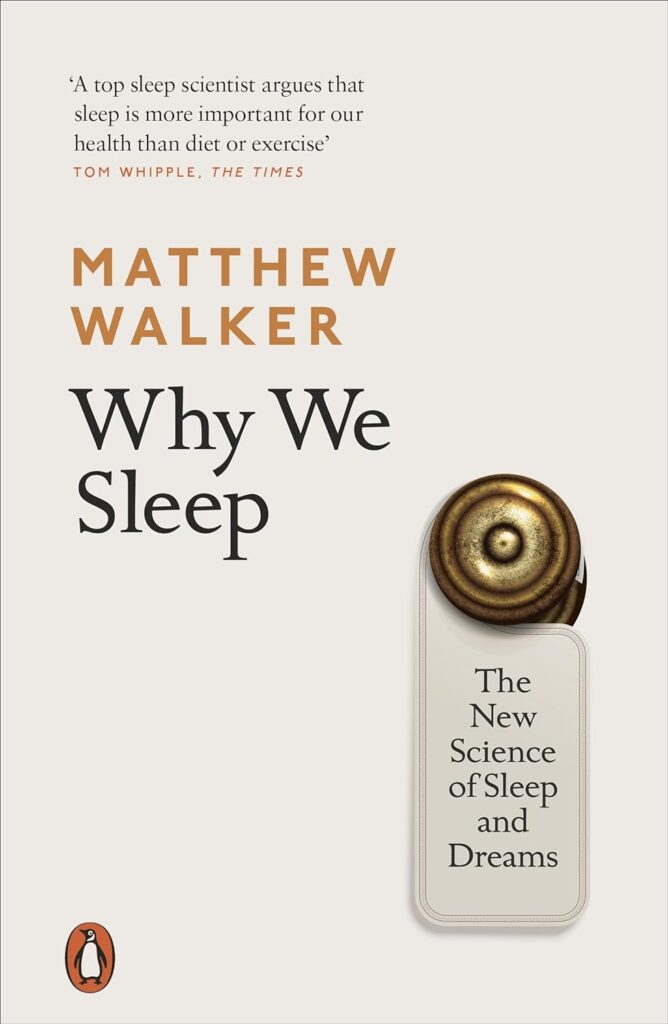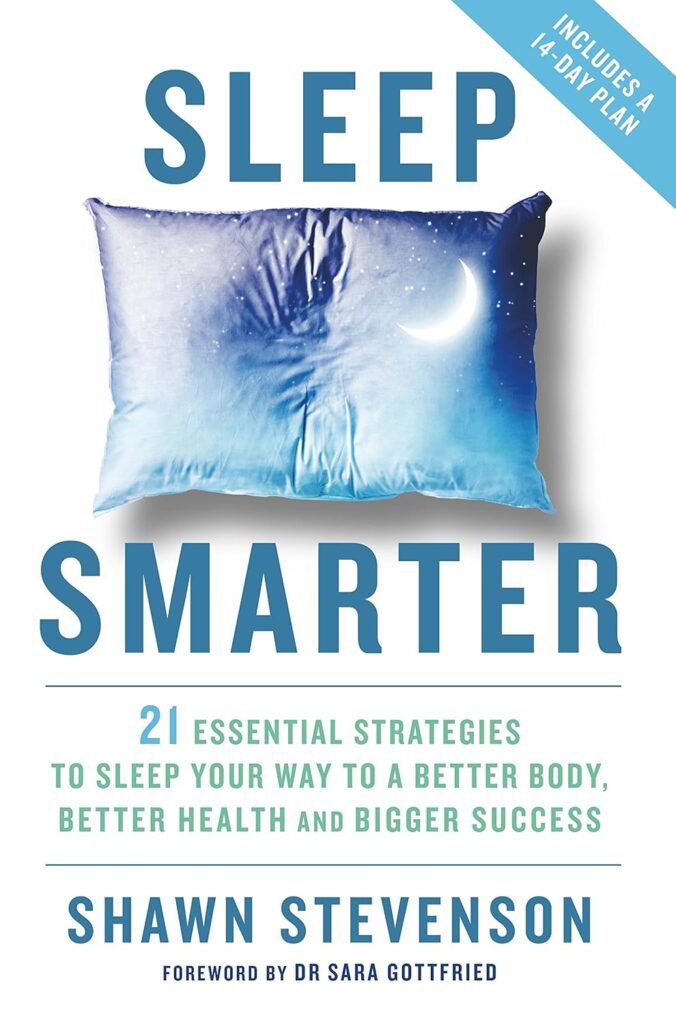
Proven Habits for Deeper, Better Sleep: Simple Tips for Quality Rest
Sleep is essential for your overall health and well-being, affecting everything from mental clarity to physical vitality. Yet, for many, it’s something that can easily be neglected. In this article, we’ll draw on key insights from books like Why We Sleep by Matthew Walker and Sleep Smarter by Shawn Stevenson, and offer practical tips to help you improve the quality of your sleep. By understanding the science behind sleep and adopting simple habits, you can prioritize rest and set yourself up for better health.
The Science Behind Sleep
Why Sleep is Vital
Sleep is not just a period of rest but a vital process that allows the body and mind to repair and rejuvenate. According to Sleep Smarter, sleep plays a crucial role in maintaining your energy levels, cardiovascular health, and mental well-being. During sleep, your body engages in essential growth and repair processes, working to keep your muscular, immune, and skeletal systems functioning optimally. Without enough sleep, these repair mechanisms begin to break down, leaving you vulnerable to a range of physical and mental health issues. By making sleep a priority, you ensure that your body has the time and resources it needs to restore itself fully, leading to a healthier, more balanced life.
Sleep Deprivation and Health Risks
The dangers of sleep deprivation extend far beyond daytime fatigue. Sleep Smarter reveals that inadequate sleep can trigger insulin resistance, which is typically associated with Type 2 diabetes. When your body becomes insulin-resistant, it has difficulty processing sugar, leading to premature aging and increased fat buildup. Over time, this lack of sleep not only disrupts your metabolism but also impacts hormone production, making it more challenging to maintain a healthy body weight and overall wellness. The long-term effects of sleep deprivation underscore why sleep is not a luxury, but a fundamental part of keeping your body functioning optimally.
Brain Function and Sleep (Glymphatic System)
Your brain performs countless tasks while you’re awake, ranging from processing information to regulating bodily functions, and this activity generates metabolic waste. According to Sleep Smarter, the glymphatic system—the brain’s unique cleaning mechanism—is responsible for removing these waste products. Interestingly, this system becomes ten times more active during sleep than when you’re awake. Without sufficient sleep, the waste buildup in your brain can contribute to cognitive issues, memory problems, and even increase the risk of neurodegenerative conditions. Getting enough sleep ensures that your brain’s waste removal system can function properly, preserving both your mental sharpness and overall brain health.
Practical Tips for Better Sleep
Mind Dump Exercise (Emptying Your Mind Before Bed)
A powerful strategy to clear your mind before bed is the “mind dump” technique, where you write out everything that’s been weighing on your mind. This could include your reflections on the day—what you did, how you felt about it, and areas where you could improve. Additionally, jot down your priorities and important tasks for the next day. This process helps you offload mental clutter, reducing the cycle of anxious thoughts that can keep you from falling asleep. By getting these thoughts out of your head and onto paper, you create a sense of closure that allows you to wind down more peacefully.
Aligning Your Sleep with Your Circadian Rhythm
To achieve the most restorative sleep, it’s important to align your sleep habits with your body’s circadian rhythm—your internal 24-hour clock that regulates sleep and wakefulness. This rhythm is heavily influenced by light exposure, which signals your body when to feel alert or sleepy. To stay in sync with your natural cycle, reduce screen time before bed, as the blue light from devices can interfere with melatonin production. Additionally, exposing yourself to natural sunlight in the morning helps reinforce this rhythm. By maintaining a consistent sleep schedule—even on weekends—you can ensure that your body fully recovers overnight, leading to better energy levels, improved hormone regulation, and overall health.
Importance of Morning Sunlight for Regulating Sleep and Hormones
Exposing yourself to sunlight in the morning is one of the simplest yet most effective ways to regulate your sleep and improve overall well-being. When sunlight enters your eyes, it activates your hypothalamus, the part of the brain that manages hormone production, including serotonin, cortisol, and melatonin. Serotonin, often called the “happiness hormone,” boosts your mood and plays a key role in regulating sleep by helping to manage the body’s internal clock. This exposure also signals to your body to suppress melatonin production during the day and prepares it to increase melatonin levels at night when it’s time to sleep. Morning sunlight sets your internal clock, ensuring that you feel more awake during the day and naturally ready for sleep at night. This process is essential for maintaining a healthy sleep cycle and hormonal balance.
How Serotonin Affects Sleep and Mental Health
Beyond its role in regulating sleep cycles, serotonin is deeply connected to mental health, influencing mood stability and emotional well-being. Research has shown that low levels of serotonin are linked to disorders such as depression, anxiety, and mood swings. Many treatments for these conditions, including antidepressants, target serotonin pathways to improve emotional regulation and boost overall mood. Additionally, maintaining balanced serotonin levels helps reduce the mental and emotional strain that can contribute to insomnia and poor sleep quality. Thus, while serotonin aids in sleep regulation, its influence on mood and mental health highlights its broader impact on your overall well-being.
Practical knowledge
Mind Dump Exercise:
- Before bed, write down your thoughts on the day—what you did, how you felt, and what you want to improve tomorrow.
- List your top priorities for the next day to reduce anxious thoughts that may keep you awake.
Align Your Sleep with Your Circadian Rhythm:
- Stick to a consistent sleep schedule, even on weekends.
- Limit screen time at least 30 minutes before bed to prevent blue light from disrupting melatonin production.
Morning Sunlight Exposure:
- Get outside early in the morning and expose yourself to sunlight for at least 15-30 minutes to help regulate your internal clock and support hormone production.
Create a Relaxing Evening Routine:
- Establish a routine that signals your body it’s time to wind down, such as reading, meditating, or practicing deep breathing.
- Ensure your bedroom is dark, cool, and quiet for optimal sleep.
Monitor Caffeine Intake:
- Avoid consuming caffeine in the late afternoon or evening as it can disrupt your sleep cycle.
Exercise Regularly:
- Incorporate physical activity into your day, but avoid vigorous exercise close to bedtime as it can be stimulating.
Inspiration and Disclaimer
This article was inspired by insights from two excellent books: Why We Sleep by Matthew Walker and Sleep Smarter by Shawn Stevenson. These resources provided valuable information about sleep science, and I’ve used their findings to craft practical advice that could be useful for everyday life.


Please note, however, that these are my personal interpretations and not medical recommendations. If you struggle with severe insomnia or other sleep-related issues, it’s best to consult a healthcare professional. If any of the ideas in this article resonate with you, feel free to try them out and form your own opinion.


